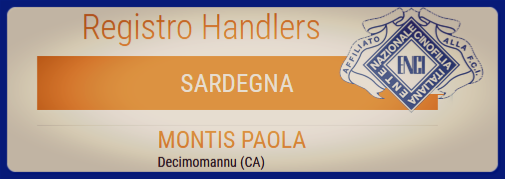Finally, a journal is a dynamic and ever-evolving document that changes and grows along with you. As your experiences, thoughts, and feelings change over time, your journal will likely reflect these changes, providing you a snapshot of your personal evolution. The journal entries may extend to multiple pages, and so both the two columns are totalled at the end of each page, with the word Total c/f, i.e. carried forward. Further, at the beginning of the next page, the amounts in debit and credit columns in the previous page is written with the words Total b/f, i.e. brought forward. Finally, on the last page of the entry, the Grand Total is written, and the columns are totalled.
- It is the most basic form of accounting and is set up like a checkbook, in that only a single account is used for each journal entry.
- Diary writing is quite simple and can be done by anyone who wishes to record and remember how their days are spent.
- Authority
Scholarly articles are written by the person(s) who did the research being reported. - All of these things make the form and contents of a journal completely personal and unique to you.
- Diaries and journals have been popular for over centuries and are used for writing and recording information about a specific person.
The cash account will show a credit of $1,000, and the inventory account, which is a current asset, will show a debit of $1,000. For accounting purposes, a journal may be a physical record or a digital document stored as a book, a spreadsheet, or data entered into accounting software. If the expense or income affects one or more business accounts, the journal entry will detail that as well. This means that, in a diary, the writer will write a description of how the day was spent, what was done during the day, their usual routine and anything that needs to get done additionally such as a ‘to do list’. Diaries are used on a daily basis; usually at the end of each day where a log of events is made. Diary writing is quite simple and can be done by anyone who wishes to record and remember how their days are spent.
journal noun
Journaling can help you deepen your understanding and awareness of your emotions, relationships, and circumstances. A journal can also help you identify patterns and make connections that you might not have noticed otherwise. https://accounting-services.net/ By giving voice to your thoughts and feelings through writing, you can also gain a clearer understanding of your values, beliefs, and motivations, which is connected to greater self-awareness and personal growth.
Whether used for recording memories, personal growth, or as a form of therapy, a daily journal provides a space to reflect on your daily life. A mood journal tracks your daily moods and emotions and is often used to help identify patterns and improve mental health. A mood journal can provide a space to reflect on your emotional experiences and track changes in your mood over time.
New Business Terms
In practice, journals must also be affordable and publish in a timely manner to be of any use. The launch of this exciting and innovative series about publishing coincides with the 350th celebration of the publication of the first academic journal. Simon is Director of Publications at the Physiological Society, and was previously a journal publisher with Earthscan, Springer and Blackwell. Some are specialized publications devoted to scientific, medical, professional, or trade interests. For an individual investor or professional money manager, a journal is a comprehensive and detailed record of trades in the investor’s accounts and can be used for tax, evaluation, and auditing purposes.
Over time, a trader can sometimes spot the errors, emotional decisions, or divergence from investing strategy that caused a loss. Yarilet Perez is an experienced multimedia journalist and fact-checker with a Master of Science in Journalism. She has worked in multiple cities covering breaking news, politics, education, and more. Another key characteristic of a journal is its truthfulness and honesty—or, rather, your truthfulness and honesty. A journal is a place where you can speak your mind and tell the truth with complete honesty, due to the private nature of what you write.
This evaluation, often called “peer reviewed,” is designed to insure that the articles published are based on solid research that meets the normal standards of the field of study covered by the journal. Authority
Scholarly articles are written by the person(s) who did the research being reported. When more than two authors are listed for a single article, the first author listed is usually the primary researcher who supervised or coordinated the work done by the other authors. The definition of journal most highly-regarded scholarly journals are usually those sponsored by professional associations; for example, the American Psychological Association and the American Chemical Society. The importance of journals in academic life goes beyond providing a means of communication and a permanent record. Journal articles are the final output of most research, and a researcher’s performance and productivity are judged largely on the number of publications as well as where they appear.
Understanding a Journal
A journal contains feelings, emotions, problems, assurances and is pretty much used to examine one’s life. Diary writing is a daily activity whereas journal writing can be done whenever the writer feels the need to write. While journal writing is generally taught at schools, diary writing can be done by anyone and does not require any skills as such.
What does a journal have to do?
Diaries and journals have been popular for over centuries and are used for writing and recording information about a specific person. Journals are more personal than diaries; however, both diaries and journals are generally kept private. Many people confuse journals and diaries to be the same, even though they are quite different to one another. The article that follows explains what diaries and journals are, and points out their similarities and differences. Kristen Wright is the author of three books on journaling, including The Transformation Year, a year-long series of daily journal prompts. With a passion for writing and self-reflection, Kristen uses her experience with journaling to help others discover the benefits of documenting their thoughts, feelings, and experiences.
Scholarly articles reflect a systematic and thorough study of a single topic, often involving experiments or surveys. Scholarly journals may also occasionally publish review articles that summarize the current state of knowledge on a topic. Authors may publish for a variety of reasons and the type of article can vary substantially. A journal is often perceived to comprise research articles but there are a wide variety of articles that serve the purpose of communication and provide valuable information to the community. News, editorials, letters, reviews, commentaries, images, audio clips and other forms of ‘article’ can be equally valuable to researchers, and can also be found in journals.
Some people may feel uncomfortable or embarrassed about the content of their journal, so keeping a journal private is important. A journal can be a physical book or notebook, or a journal can also be a digital file or app stored on your computer or smartphone. Regardless of the form, a journal is usually kept in a place that is private, accessible, and convenient. All the columns are to be filled at the time of recording the transaction in the journal, except the ledger folio column which is filled when the transaction is posted to the ledger.
This process of acknowledging these experiences lessens the likelihood of ignoring or feeling overwhelmed by them. As we dive into the definition of a journal, you may be wondering about the difference between a diary vs. a journal. In a nutshell, a journal and a diary are similar in that they are both personal records of thoughts, feelings, experiences, and observations. The terms “journal” and “diary” are often used interchangeably, and the distinction between a journal and a diary can be subtle.
Companies use many different types of journals to record their transactions like the sales journal, cash receipts journal, and the accounts payable journal. All of these different journals are optional and can be used if the company wants to. Food journals can also be used to track calorie and nutrient intake, which can be helpful for those looking to lose weight, gain weight, or maintain their current weight. A food journal can be used to identify patterns in eating habits and can help individuals make changes to their diet if they are looking to improve their overall health.
In her role at Day One, she helps to promote the power of journaling so people from all walks of life can experience the transformative power of journaling. An art journal is a type of personal journal that combines writing with artistic expression. This type of journaling allows you to combine thoughts and feelings with creative forms of self-expression, such as drawing, painting, or collage. Prayer journals can serve as a tool for spiritual growth, helping deepen a connection with a higher power and reflect on beliefs. Some people also use prayer journals to track their progress, set spiritual goals, and remember important moments and events. The act of writing in a prayer journal can also be a form of meditation and a way to connect with one’s spirituality on a deeper level.
By combining words and images, you may get a deeper understanding of your thoughts and feelings and can more effectively process their experiences. Whether used as a therapeutic tool or simply as a form of creative expression, an art journal provides a unique and dynamic way to reflect on your life and express yourself through art. Regardless of the specific approach, the key aspect of a gratitude journal is to take time to reflect on and acknowledge the good things in your life. Using a set of gratitude journaling prompts can help guide you into a regular gratitude journaling practice. During the 19th century, the popularity of personal journals grew significantly, and many people began to use them as a way to reflect on their thoughts, feelings, and experiences.


